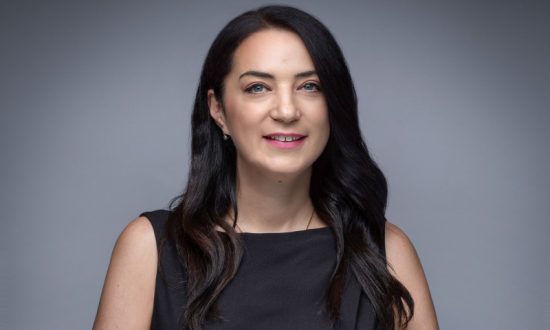Dr Jelena Janjusevic is the Associate professor for Finance and Academic Head of Accountancy, Economic and Finance, and Global Director of Studies in Finance at Heriot Watt University . Her areas of expertise include financial markets, investments, portfolio management, sustainable finance, research in finance (econometrics), financial derivatives, but also economics and economy of sustainable development.
Recently, in an exclusive interview with Higher Education Digest, Dr Janjusevic shared her professional journey, challenges overcome by her in her career, significant milestones, personal role model, and much more. The following excerpts are taken from the interview.
Tell us about the UG and PG programs taught by you in finance and economics at Heriot-Watt University. How do they prepare students for the needs of modern society with practical learning for real world action?
On UG level, EBS in Dubai is offering two programs: MA Business and Finance and MA Accountancy and Finance.
MA Business & Finance is a four-year rigorous programme offering students an opportunity to specialise in Finance alongside Business. As such, the programme is the only specialist offering in Finance for students desirous of making a career in the field. The programme draws upon latest industry trends to develop employability skills of the graduates to contribute successfully to their jobs. The programme is affiliated with the CFA Institute, USA enabling students to take up CFA Level-1 examination successfully, ideally at the end of 3rd year.
MA Accountancy & Finance is a four-year rigorous programme offering students an opportunity to specialise in accountancy and finance, tightly linked with professional accreditation bodies like ACCA, CIMA, CPA Australia, etc.
Accountancy has often been described as the language of business, and it has long been recognised that an understanding of accounting and finance is an essential prerequisite for those who intend to pursue a career in commerce, industry or public administration. The increasingly complex environment within which both financial and international business is conducted and the development and spread of computerised techniques continue to reinforce the need for such an understanding. The value of such studies is also recognised by professional accountancy and allied societies, which offer, to approved graduates, substantial examination exemptions and reduced periods of pre-qualifying service. Our Accountancy and Finance programme is a specialist degree particularly well suited to those seeking entry into the accountancy profession and careers in financial services or financial management. It aims to encourage the development of cognitive skills so that students learn to apply their new knowledge and understanding as they progress, and become versed in the deeper approach to learning, using powers of analysis, synthesis and evaluation.
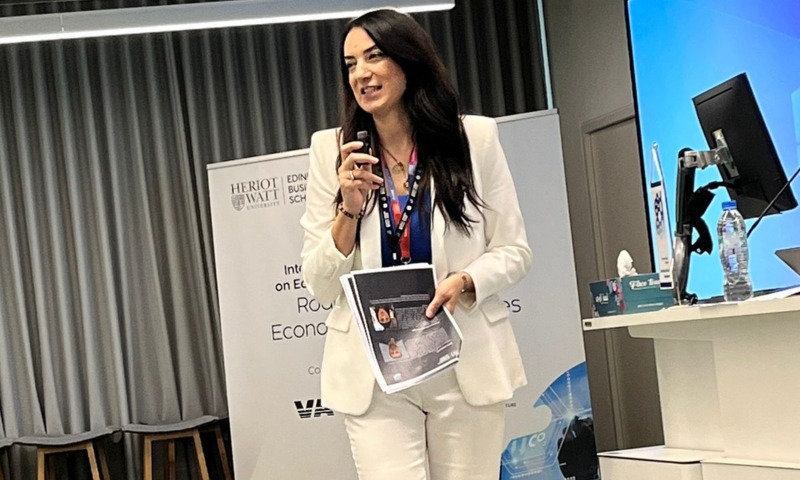
Dr Jelena Janjusevic, can you tell us about your professional background and areas of interest?
I am University professor with an extensive career spanning over 12 years of international teaching experience and more than 20 years in research, consulting, and management. Currently serving as an Associate Professor in Finance and Academic Head for Accounting, Economics, and Finance (AEF), as well as the Global Director of Studies in Finance at Heriot Watt University’s Dubai campus in the United Kingdom, creating significant contributions.
With a proactive role in program development, academic staff coordination, and enhancing student experiences, I have proven my dedication to shaping educational initiatives. Notably, my role as the School’s external engagement coordinator showcases success in bridging the gap between academia and industry while improving overall student experiences.
My teaching expertise extends to both undergraduate and postgraduate programs, specializing in financial markets, investments, portfolio management, sustainable finance, research in finance (econometrics), financial derivatives, as well as economics encompassing micro and macro aspects and the economy of sustainable development.
In my more than 20 yearlong working experience, I was engaged in different research projects and activities. I have spent more than 7 years working in first Think tank organization in Montenegro as researcher and analyst on many different projects dealing with financial markets, macroeconomics, capacity development, sustainable development, reforms, etc. Later, I continued working with international organizations managing projects in different areas. I established and led Centre for Sustainable Development, research centre founded by UN and Government of Montenegro, where designed, fundraised and led project portfolio of more than USD 20 mil. Those research activities served as a bridge between science and policy decisions on different levels and for different partners on national and international level (government of Montenegro, municipalities, social partners, foreign government officials, international institution representatives – World Bank, IFC, EBRD, USAID, UNDP, CHF, EC, etc, domestic and foreign private companies).
My work has been showcased in prestigious events and conferences like the UN General Assembly and the Paris Climate Agreement conference, underscoring my contributions to high-level discourse. My personal commitment has been invaluable in upholding teaching excellence. My contributions encompass current teaching program reviews, curriculum development, and the design, planning, and implementation of academic programs for both regular study programs and executive education.
You hold a PhD in quantitative finance from University of Montenegro. What fascinated you about this subject?
My PhD thesis “Modern Asset Allocation Model, application to Montenegro”, done under motorship of esteemed professor Marina Morena from Turin University, contained development of Matlab code for calculating optimal portfolio using Markovic Mean variance theory, was pioneering work for emerging market such as Montenegro. Moreover, developed model could be replicated and applied on any other market in the world. Special challenge was dealing with imperfections of the Montenegrin capital market, requiring use and application of additional specific solutions and techniques and methods (statistical, econometric, mathematic etc.). My work and the thesis were awarded by the Central bank of Montenegro, as the best PhD thesis in 2009 in the field of economic sciences in Montenegro.
I wrote and published number of articles and was part of the team of authors of important publications. Besides presented work, I am working with my students on Master and UG dissertations, guiding and assisting them in their particular field of research. I was mentor on more than 200 theses for graduate and undergraduate students. As an important accomplishment I would like to emphasis my joint research work with students on several research or conference papers, presented to international conferences and published in valuable conference proceedings and journals.
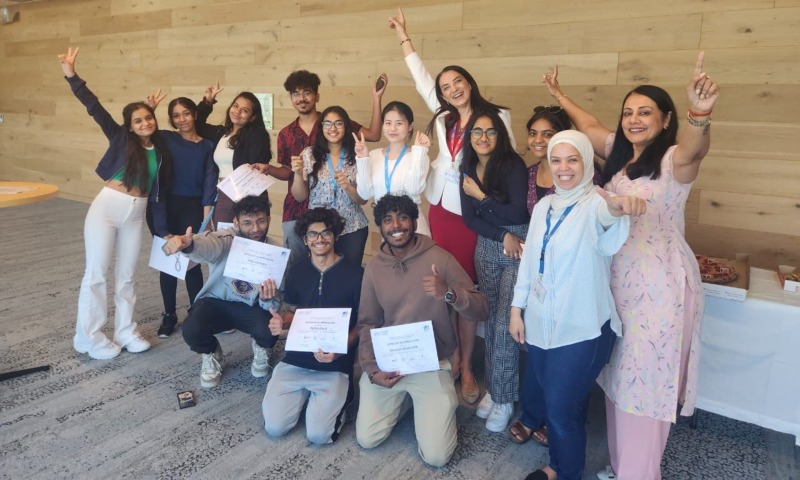
What are some of the roadblocks that you faced in your career? Do you have some examples to share on overcoming them?
I have encountered various challenges throughout my career. However, I believe that these challenges have presented valuable opportunities for growth and development. Here are some examples of roadblocks I faced and how I overcame them:
Balancing research and policy engagement: Working on research projects while actively engaging with policy decisions on different levels required effective time management and prioritization. I developed strong organizational skills to ensure that both research activities and policy engagements received the necessary attention. By establishing clear goals and timelines, I successfully managed to bridge the gap between science and policy, contributing to informed decision-making processes.
Navigating complex markets and imperfections: Dealing with the unique challenges of the Montenegrin capital market during the development of my asset allocation model was a significant hurdle. To overcome this, I utilized a range of specialized techniques and methods, including statistical, econometric, and mathematical approaches. By incorporating these solutions, I was able to address market imperfections and develop a pioneering model applicable not only to Montenegro but also to other markets worldwide.
Fundraising and project management: As the leader of the Centre for Sustainable Development, I had the responsibility of designing, fundraising for, and managing a projects. Overcoming the challenge of securing adequate funding involved strategic planning, networking, and persuasive communication skills. By showcasing the value and impact of our research initiatives, I successfully attracted funding from diverse sources, including international institutions, government entities, and private companies.
Mentoring and collaboration: Guiding and assisting staff and students in their research and other professional endeavors presented its own set of challenges. However, by fostering a collaborative and supportive environment, I was able to overcome these hurdles. Establishing strong mentor-mentee relationships and encouraging teamwork among students led to fruitful collaborations on research papers and conference presentations. These accomplishments, in turn, contributed to their academic and professional development.
Throughout my career, I have embraced challenges as opportunities for personal and professional growth.
Self-awareness, effective self-management, building transferable skills, continuous learning through reading, networking, and developing a unique perspective are crucial for a successful career. Being aware of one’s strengths and weaknesses, managing time and priorities, and cultivating skills that can adapt to various contexts are essential. Continuously learning through reading broadens knowledge and stimulates growth, while networking fosters connections and opens doors to new opportunities. Lastly, developing a unique perspective and challenging existing ideas allows individuals to become thought leaders and make meaningful contributions to their field. Embracing these principles empowers individuals to navigate challenges, seize opportunities, and thrive in their careers.
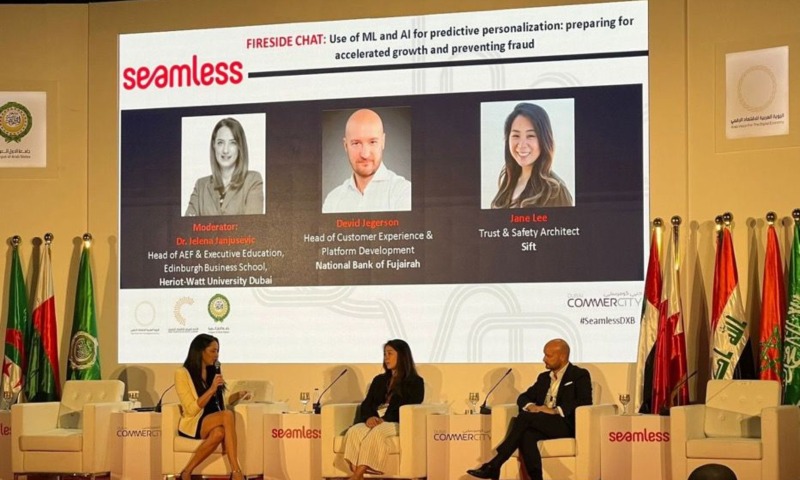
At the 14th edition of the Middle East Banking and Innovation Summit (MEBIS), organized by Expotrade Global, you discussed on FIRESIDE CHAT: MENA Banking: Innovating for Greater Revenue and Enhanced Capabilities. Can you please shed light on this topic?
This was a very interesting topic shaping discussion on digitalization and technologies, and innovation in the financial world, particularly. It was particularly important to hear insights from different perspectives and angles, both from banks and incumbents (start-ups).
Fintech has revolutionized the banking industry, presenting both challenges and opportunities for incumbent banks. Our panel discussion explored the factors that differentiate incumbents from fintechs and highlighted their unique value propositions. We discussed how incumbent banks can embrace agility, innovation, and modern platforms to keep pace with fintechs and meet evolving customer expectations. Additionally, we have delved into strategies for navigating diverse markets, leveraging data for insights and personalization, and fostering a culture of continuous innovation through collaboration, ecosystems, and emerging technologies.
What has been your most career-defining moment that you are proud of?
I believe that there were several defining moments in my career rather than just one. Firstly, being raised by an entrepreneur and teacher instilled in me a mindset of competition, ambition, and the importance of education. From the early stages of my career, I understood the significance of combining these three elements. As a young basketball player, I learned the value of teamwork and collaboration. Later on, I had the privilege of having mentors who emphasized the importance of building a strong business network and forming partnerships. These lessons were further reinforced during my work with international organizations and government entities.
Working closely with students ignited a sense of joy and a deep desire to remain in the education sector. Collaborating with the United Nations on sustainability initiatives sparked my passion for sustainable finance, ESG principles, and conducting research in this field.
I am an achiever committed to driving positive change through sustainable economic growth. Through my purpose-driven leadership, I aim to inspire and motivate others to act towards sustainability in their work. I will achieve this by developing collaborative educational programs, executive training, and impactful research.
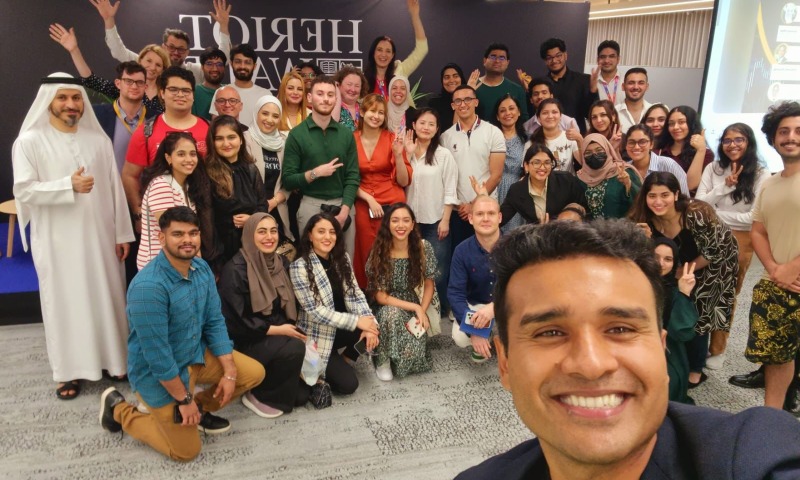
How do you define success? What is your take on the ways to achieve long-term success?
Dream big but have a plan how to transform your dreams in ideas in action! And be guided by love in all you do!
Dreaming big is important, but it’s equally crucial to have a concrete plan to transform those dreams into actionable ideas. By setting specific goals, breaking them down into manageable steps, and considering potential challenges, we can create a strategic roadmap for success. Anticipating obstacles and seeking support from mentors and collaborators is vital. While dreams fuel inspiration, it’s the combination of ambitious vision and deliberate action that turns aspirations into reality.
Let love be your guiding force in every aspect of life, inspiring empathy, kindness, and positive impact in relationships and work. With love as your compass, you contribute to a more compassionate and harmonious world.
Who is the one person you look up to and why?
The person I look up to the most is my mother. Her unwavering energy, infectious cheerfulness, and unwavering commitment to everything she does are truly inspiring. She constantly surprises me with her innovative ideas and boundless creativity, infusing love into every task she undertakes. Her caring nature is evident in her actions, as she goes above and beyond to ensure the well-being of those around her. In the face of challenges, she fights with resilience and determination, never giving up until she achieves her goals. My mother’s remarkable qualities make her a true role model, and I am grateful for the invaluable lessons she has taught me through her actions and achievements.
As a seasoned researcher and analyst, what do you think will be big and exciting research areas in economics and finance in the next few years?
In the coming years, there are several exciting research areas in economics and finance that will garner significant attention. Firstly, sustainable finance and impact investing will take center stage as the world embraces the importance of environmental, social, and governance (ESG) factors. Researchers will focus on developing innovative financial products and strategies to address global sustainability challenges. Additionally, the green economy and climate change economics will be a key focus, with studies analyzing the economic implications of transitioning to a sustainable economy, evaluating climate policies, and exploring risk management strategies in the face of climate-related challenges.
Secondly, the rapid digitalization of the financial industry will pave the way for research in artificial intelligence (AI), analytics, and fintech. Scholars will explore the applications of AI and machine learning in finance, ranging from algorithmic trading to personalized financial services. They will also investigate the impact of fintech startups and digital payment systems on financial inclusion, consumer behavior, and regulatory frameworks.
Overall, these research areas will contribute to a better understanding of sustainable finance, the economic consequences of climate change, the integration of AI and analytics in the financial industry, and the implications of fintech innovations. By advancing knowledge in these fields, researchers will play a vital role in shaping the future of economics and finance while addressing pressing societal and environmental challenges.




